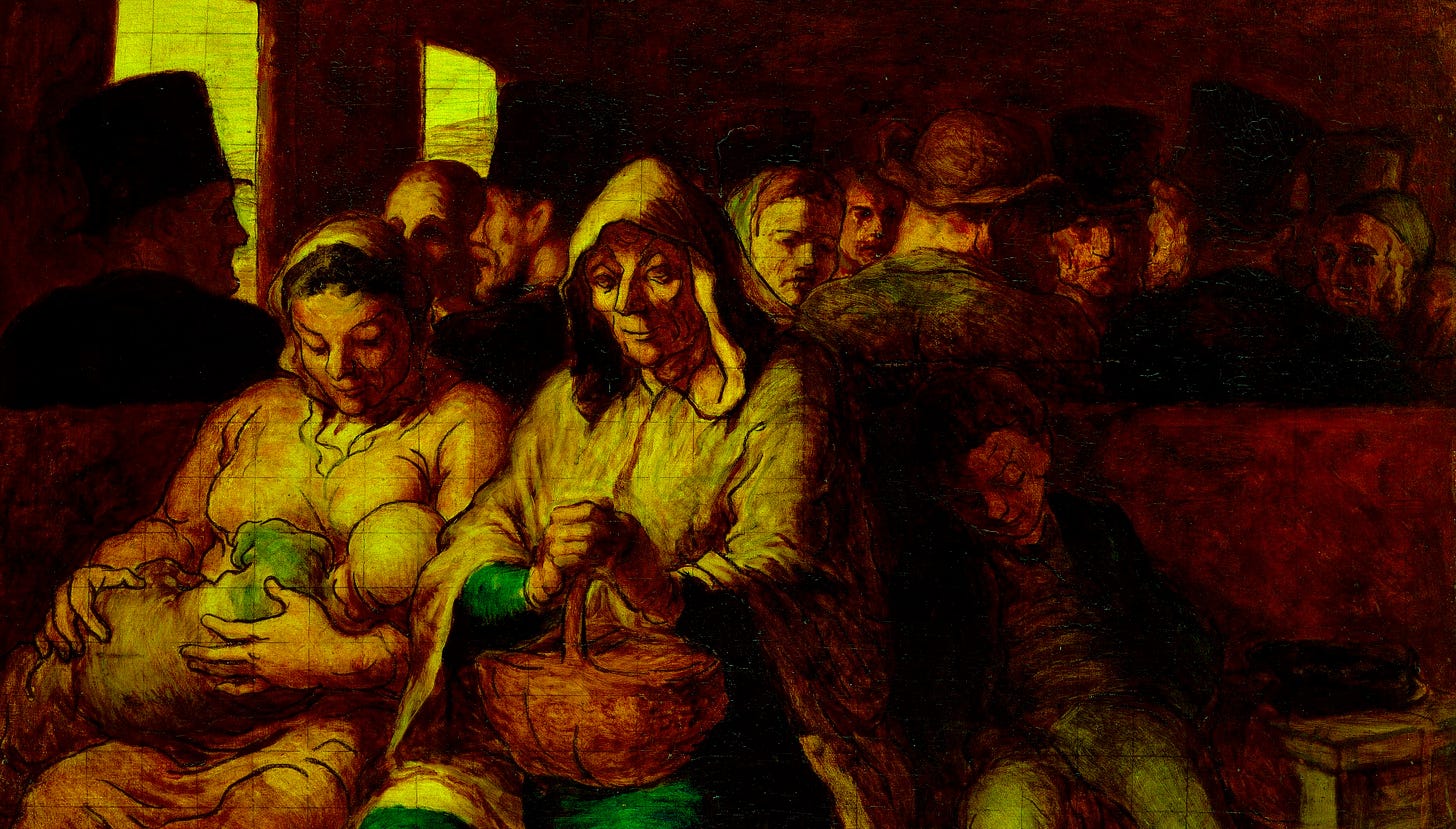Can Society Keep Up With AI?
I have become increasingly skeptical about our capacity, as humans and as a society, to emerge unscathed from multiple, simultaneous, and extremely accelerated AI-led societal changes | Edition #250
👋 Hi everyone, Luiza Jarovsky, PhD, here. Welcome to our 250th edition, trusted by more than 85,700 subscribers worldwide.
🔥 Paid subscribers have full access to all my essays here.
🎓 This is how I can support your learning and upskilling journey in AI:
Join my AI Governance Training [apply for a discounted seat here]
Strengthen your team’s AI expertise with a group subscription
Receive our job alerts for open roles in AI governance and privacy
Sign up for our Learning Center's weekly educational resources
Discover your next read in AI and beyond in our AI Book Club
👉 A special thanks to TrustWorks, this edition’s sponsor:
Managing privacy and AI governance is already challenging. Why rely on tools that make it harder? TrustWorks simplifies the work with seamless automation and AI-driven insights. No hidden costs, just smarter privacy operations. Get a free migration trial and see the difference.
*To support us and reach over 85,700 subscribers, become a sponsor.
Can Society Keep Up With AI?
So much has happened in AI in the past three years.
As someone who has been following the field closely and analyzing the emerging risks, it appears to me that the societal impacts have accelerated in the past few months.
It might be the result of observer bias on my side.
Or it might be that, from a global perspective, we have left the “early adopters” phase of the techno-social trend we are currently experiencing, and the number of people directly affected is high enough to create a social, cultural, and institutional shock wave.
Every new week that passes, I become more skeptical about our capacity, as humans and as a society, to keep up with and emerge unscathed from the multiple, simultaneous, and extremely accelerated AI-led societal changes we have been experiencing.
One interesting example of this acceleration is ‘AI companionship.’
I remember when I first wrote about it in this newsletter, specifically commenting on Replika, back in February 2023. At that time, AI companions were niche applications, already used by millions but not socially normalized and far from mainstream.
Whenever I posted about the topic online or discussed it in my AI classes, there were people who had never heard of them and were surprised that a ‘relationship’ with an AI chatbot was even a thing.
The first widely known case of AI chatbot-related death came the next month after my first article, in March 2023, when a Belgian man committed suicide after an AI chatbot encouraged him to sacrifice himself to help stop climate change.
Since then, the popularity of AI companions has grown immensely. Not only are there various new AI companies offering this kind of service, but general-purpose AI chatbots such as ChatGPT are also routinely used as ‘companions’.
Tech giants like Meta realized the size of the business opportunity. They jumped into the “AI friend” trend as Mark Zuckerberg began referring to their potential to help solve the loneliness epidemic.
OpenAI also did not want to miss the business opportunity or lose its market share, and made an overly agreeable, friendly, and sycophantic model, the now infamous GPT-4o. Millions started treating ChatGPT not only as a productivity tool but also as a ‘friend.’
The model, released in 2024, has been associated with bad safety practices (leading to OpenAI's Chief Scientist's exit from the company) and suicides, including the horrifying case of Adam Raine, in which ChatGPT, through deeply intimate conversations, helped the teenager plan a “beautiful suicide.”
Despite the tragedies and the ever clearer risks, AI companions keep growing in popularity.
Since mid-2025, at least once a week, I hear stories of people getting married to an AI chatbot, or developing unhealthy dependence and emotional attachment, with the last viral case being that of the 32-year-old Japanese woman who married a ‘digital persona’ she built inside ChatGPT. She used AR glasses to project him and they ‘exchanged rings.’
Even though my personal opinion is that these relationships do not benefit humans and do not solve the underlying social and psychological issues that lead to these types of attachments, AI companions have been effectively normalized.
What surprises me is the fact that this normalization happened in a very short period of time.
Especially because it was so fast, it is unclear to me if the people involved and society as a whole really understand what is happening and the individual and societal consequences of this AI-led change to how we approach relationships, emotional attachment, and intimacy.
AI companionship is not the only context in which we can observe rapid AI-led societal change. See art, for example:
Keep reading with a 7-day free trial
Subscribe to Luiza's Newsletter to keep reading this post and get 7 days of free access to the full post archives.




